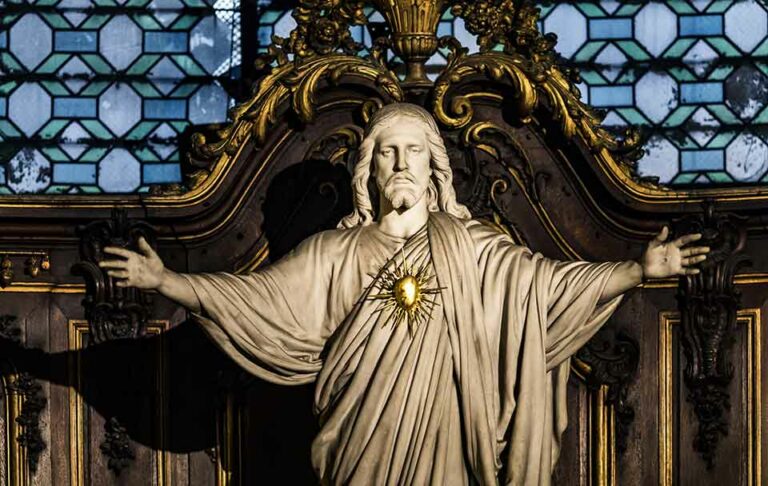The Holy Spirit & Spiritual Direction
“The grace of Our Lord Jesus Christ, and the love of God, and the communion of the Holy Spirit be with you all.”
“And with your spirit.”
This simple, yet profound greeting at the beginning of every Mass reminds us of what makes up the very fabric of our lives as Christians: grace, love, communion.
While we are used to words like grace and love, the word communion is less familiar to us.
Communion is derived from com-, meaning “with, together” and unus, “union, oneness”. In other words, to be one with, unity.
Communion comes from the Holy Spirit, the Third Person of the Holy Trinity who is the bond of love between the Father and Son. The Holy Spirit is communion. “The Spirit, who is the Spirit of communion, abides indefectibly in the Church. For this reason the Church is the great sacrament of divine communion which gathers God’s scattered children together.”1
The Holy Spirit is the source of unity within relationships, within the Church, within the world, and the unity within ourselves.
“The Holy Spirit is recognizable in the way in which he forms human life. A life formed from faith is in turn a sign of the Holy Spirit. To speak of ‘Christian spirituality’ means to speak about the Holy Spirit. He makes himself recognizable by gaining a new center for human life.”2
One of the marked signs of the Holy Spirit’s presence in the life of a Christian is the way he or she lives a unity of life, a life centered in Christ. It is seen in the way he or she engages with all aspects of life: vocation, relationships, work, leisure, down to the simplest of daily tasks.
And this is precisely where the task of spiritual direction comes into play: to listen to the promptings of the Holy Spirit who communicates to us his unity, bringing about a deeper unity and wholeness within ourselves and within our lives.
Both the spiritual director and directee are called to listen to the gentle prodding of the Holy Spirit who desires that we share in the communion of God himself. This capacity to listen is only possible through an active prayer life, on both the part of the director and directee.
When the Holy Spirit is invited into the conversation, and both the director and directee’s posture is one of receptivity, the director can help the directee recognize and respond to the promptings of the Holy Spirit, which are characterized by a sense of peace, joy, freedom, fruitfulness, and a deeper unity of life.
At the same time, this experience of communion always opens up for the life of the Church and the world.
We can trust our experience, though “trust is only appropriate when one does not speak on a purely private account, but from an experience of the Spirit tested in front of and standing in the context of the whole, i.e. when one submits the experience of ‘spirit’ to the entirety of the Church.”3
Therefore a spiritual director also has the task of not only listening to the Holy Spirit in conversation, but also listening to the Church. Indeed, obedience to the Church is listening to the Holy Spirit.
Ultimately, spiritual direction is a participation in the life and communion of the Holy Spirit, who leads us into a deeper unity of life in Christ, which extends to all of our relationships, to the Church, and to the world.
- Catechism of the Catholic Church, 2nd ed. (Vatican City: Vatican Press, 1997), 1108
- Joseph Ratzinger, “The Holy Spirit as Communio: Concerning the Relationship of Pneumatology and Spirituality in Augustine,” Communio 25 (Summer 1998): 324.
- Ratzinger, “The Holy Spirit as Communio: Concerning the Relationship of Pneumatology and Spirituality in Augustine,” 325.







